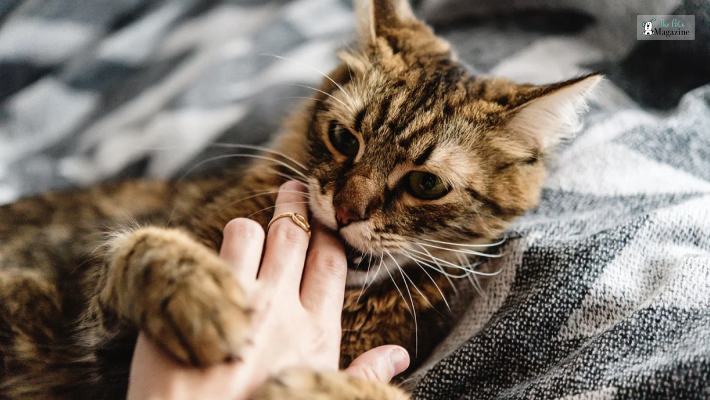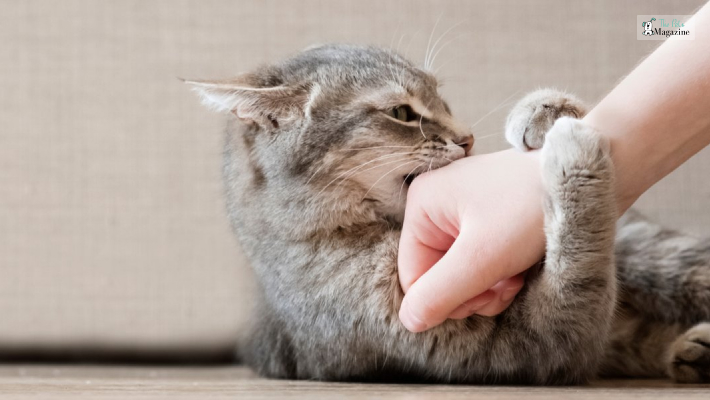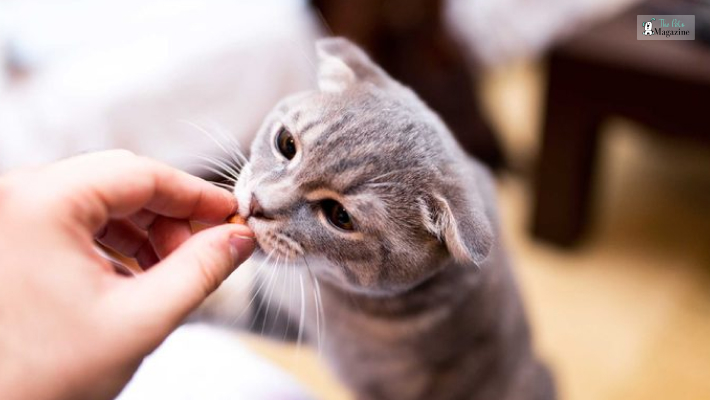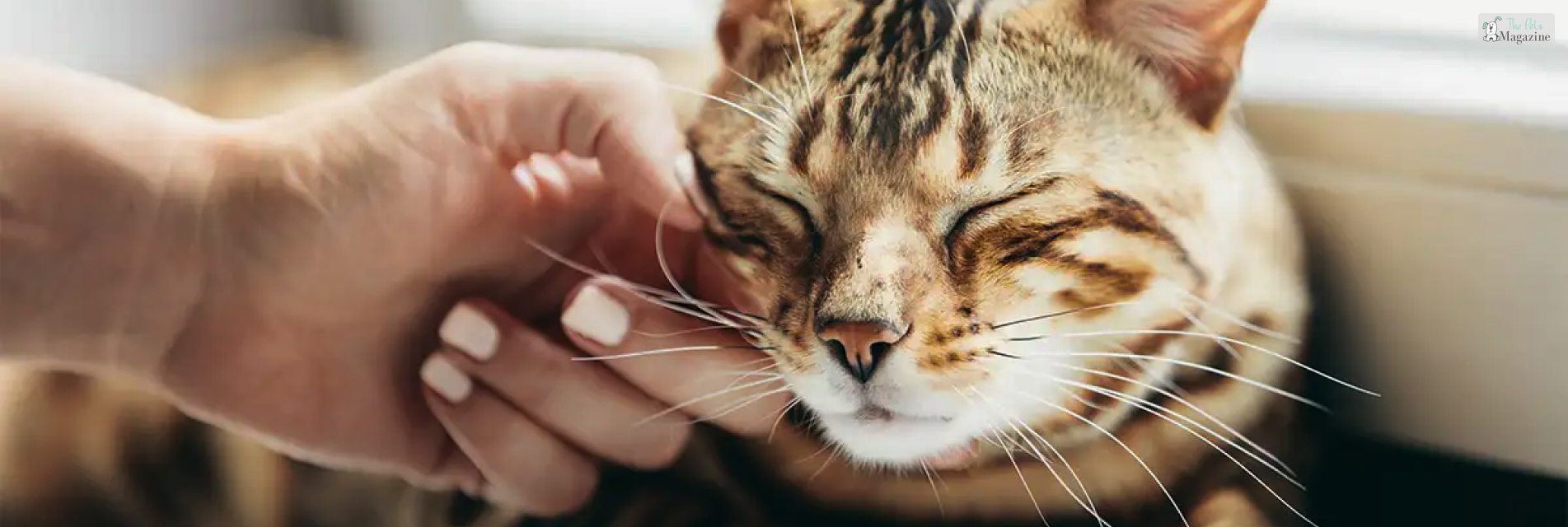Why Does My Cat Bite Me and How to Stop Them?


Ever wonder why your furry feline friend sometimes turns into a furry terror, biting and scratching with abandon? We’ve all been there – enjoying some quality time with your cat when suddenly those sharp teeth sink into your hand or arm. What gives?
Before you condemn your cat as mean or aggressive, know that there are several possible reasons for their behavior and ways you can help address it. The truth is, cat bites and scratches are usually a form of communication from your cat, though the message isn’t always easy to understand.
But with time, patience, and the right techniques, you can get your cat’s biting and scratching under control and go back to enjoying relaxing with your feline companion.
Understanding Why Cats Bite
Your cat may bite for several reasons. It’s usually a means of communication when they want attention, or food, or are feeling fearful or aggressive. If you were wondering “why does my cat bite me” then read on to know about the common reasons.

Attention seeking
If your cat bites when you’re petting or playing with them, it often means they want more stimulation or interaction. Provide interactive toys to redirect their biting behavior into play. You should also avoid rough play that encourages biting.
Hunger
If it’s around feeding time, your cat may bite to let you know they’re ready to eat. Stick to a regular feeding schedule so they know when to expect their next meal.
Fear or stress
An anxious or fearful cat may bite defensively. Give your cat their own space to retreat to when stressed and avoid confrontation. Help build their confidence through positive reinforcement training and socialization from an early age.
Aggression
Some cats bite to assert dominance or in response to unwanted behavior. Never physically punish your cat, as this will likely make the aggression worse. Instead, consult with a vet or animal behaviorist to determine the cause of aggression and get advice tailored to your cat’s needs.
With time and patience, you can curb biting behavior by figuring out the underlying cause, avoiding triggers, and redirecting your cat’s energy into appropriate outlets. Consistency and positive reinforcement are key. But if biting continues frequently or breaks the skin, don’t hesitate to get professional help. A happy, well-adjusted cat will be a joy to live with for years to come.
How to Stop Your Cat From Biting: Effective Training Techniques and Tips
Your cat biting you is frustrating, but the good news is there are some effective techniques you can try to curb this behavior.

Provide interactive playtime
Playing with your cat using interactive toys like feather wands or laser pointers is a great way to redirect their biting behavior into appropriate play. Give them at least two 10-15 minute play sessions a day to release pent-up energy and stimulate their mind.
Avoid rough play
While playing with your cat is important, avoid rough play that encourages biting like wrestling or grabbing their paws. Stick to gentle play that doesn’t rile them up.
Ignore the behavior
When your cat bites you, don’t give them attention. Walk away or stop interacting with them immediately. Giving them attention, even if it’s scolding, reinforces the behavior. Ignoring them teaches them that biting results in loss of attention.
Redirection
If your cat bites during petting or cuddling, redirect them to an appropriate toy or scratching post instead. You can also try making a loud noise by saying “Ouch!” to startle them, then redirect them to an appropriate item to chew or scratch.
With consistency, interactive play, avoiding rough play, ignoring bites, and redirection, you can curb your cat’s biting behavior. But if the problem continues for more than a few weeks, consult your vet or an animal behaviorist. They may be able to evaluate if there are any underlying medical or behavioral issues.
Why Does My Cat Bite Me: When to Seek Professional Help
Sometimes cats may bite their owners aggressively, which can be painful and frightening. If your cat is biting frequently or causing injury, it’s time to seek help from a vet or animal behaviorist. They can evaluate your cat’s behavior, environment, and health to determine the underlying cause of the aggression and recommend an appropriate treatment plan.

Medical Causes
In some cases, an undiagnosed medical issue may be irritating your cat or causing pain, leading to biting. A vet can examine your cat for any medical causes and may run blood tests or other diagnostics if an illness is suspected. Once any medical triggers have been ruled out or addressed, behavioral modification may still be needed to break the biting habit.
Behavioral Modification
For behavioral aggression, a vet or animal behaviorist can help develop a customized plan to modify your cat’s behavior through techniques like:
Avoidance of triggers:
Helping you identify situations that trigger biting and ways to avoid them when possible. This could be not petting your cat in certain spots or at certain times.
Rewarding good behavior:
Use positive reinforcement like treats, play, and praise to reward your cat when they interact with you without biting. This helps teach them proper behavior.
Redirecting aggression:
Giving your cat an appropriate outlet for their energy and aggression, such as interactive toys to bite and chase instead of you.
Consistency and time:
Behavioral change takes time and consistency. Be patient through the process, closely follow the recommendations from your vet or behaviorist, and understand that reducing aggression can take weeks or months of dedicated training. Don’t give up!
With the right treatment plan and your dedication, biting and aggression can often be resolved. But in some cases, especially if the aggression is severe, medication or rehoming may need to be considered as a last resort. Consult with professionals to determine the safest and most ethical option for your cat and family.
Bottom Line
Now that you have got the answer to your question “Why does my cat bite me,” the important thing to do is to help your cat be less aggressive over time. Be patient and consistent, avoid rough play and overstimulation, give them their own space when they want it, make sure they have plenty of appropriate toys to bite and scratch, and reward and praise them when they’re being gentle.
With time and the right techniques, you can get your cat to stop biting and develop better habits and a calmer demeanor.
Recommended Reading:








Leave A Comment